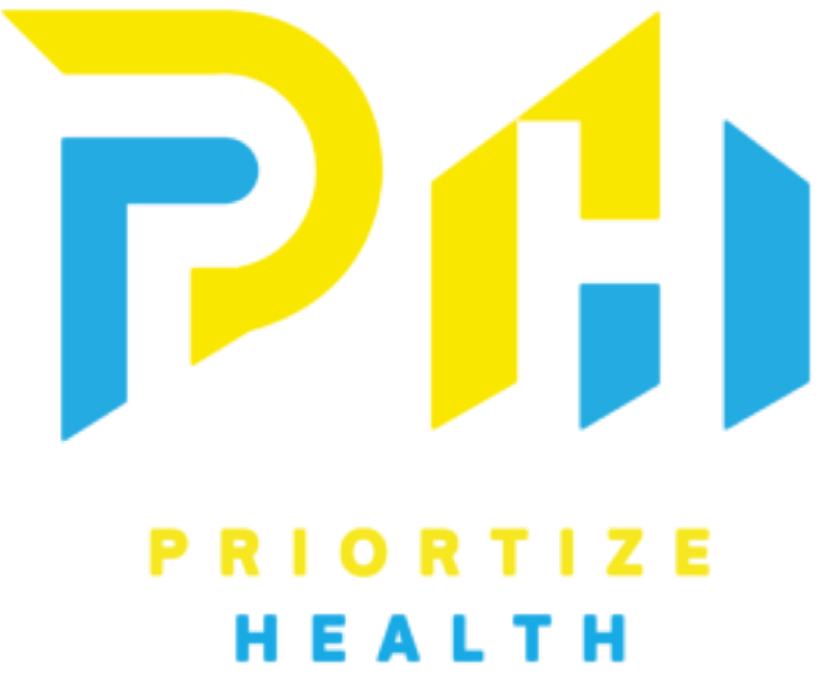
How Gut Health Affects the Skin
People have started recognizing the link between gut health and our well-being in the realm of health and wellness. We all know that gut health impacts digestion and immunity. But emerging research suggests that the health of our gut microbiome also plays a crucial role in skin health. In this article, we’ll explore the fascinating connection between gut health and skin health. Let’s understand how nurturing your gut can lead to a radiant complexion.
The Gut-Skin Connection: The gut-skin axis refers to the bidirectional communication pathway. This pathway is between the gut microbiome and the skin. The gut microbiome consists of trillions of bacteria, fungi, and other microorganisms. Our gut health influences various physiological processes throughout the body. It includes those related to skin health. An imbalance in the gut microbiome, known as dysbiosis, can manifest in the form of skin. They can be in form of acne, eczema, rosacea, and psoriasis.
What is a Healthy Gut
A healthy gut refers to a balanced and well-functioning gastrointestinal tract. We can characterize it by a diverse and thriving gut microbiome, proper digestion and absorption of nutrients. Our immune function should be effective, and we should have a strong gut barrier. Here are the key components of a healthy gut:
1. Diverse Gut Microbiome:
A healthy gut contains a diverse array of beneficial bacteria, fungi, and other microorganisms. They can populate the digestive tract. This diversity is essential for maintaining optimal digestive function. It also supports immune health, and protects against harmful pathogens.
2. Proper Digestion and Absorption:
A healthy gut breaks down food into nutrients in an effective manner. It absorbs essential vitamins, minerals, and macronutrients, and eliminates waste products. There should be adequate stomach acid, digestive enzymes, and bile production in the body. It contributes to optimal digestion and nutrient absorption.
3. Strong Gut Barrier:
The gut lining serves as a barrier. It prevents harmful substances, toxins, and pathogens from entering the bloodstream. A healthy gut barrier is characterized by tight junctions between intestinal cells. It regulates the passage of molecules and maintain gut integrity.
4. Balanced Immune Function:
Approximately 70-80% of the body’s immune cells stay in the gut-associated lymphoid tissue (GALT). A healthy gut supports balanced immune function. It distinguishes between beneficial and harmful substances. This helps in mounting an appropriate immune response to invaders while avoiding over-reactivity or inflammation.
5. Gut-Brain Axis Balance:
The gut-brain axis refers to the bidirectional communication between the gut and the brain. A healthy gut microbiome and gut barrier function influence brain health, mood regulation, and cognitive function. Stress and mental health can impact gut motility, digestion, and microbial balance.
6. Regular Bowel Movements:
A healthy gut maintains regular bowel movements. In such case stools are well-formed, easy to pass, and free from discomfort or irregularities. Adequate fiber intake, hydration, and physical activity contribute to optimal bowel function and digestive health.
7. Absence of Gastrointestinal Symptoms:
Individuals with a healthy gut experience few gastrointestinal symptoms. They are bloating, gas, indigestion, abdominal pain, or diarrhea. These symptoms may state underlying digestive issues or imbalances in the gut microbiome.
Impact of Gut Health on Skin Conditions:
- Acne: Imbalances in the gut microbiome can lead to inflammation and hormonal fluctuations. This can result in acne development. Studies have shown that individuals with acne often have altered gut microbiota composition. It suggests a connection between gut health and acne severity.
- Eczema: Eczema is a common inflammatory skin condition. It may cause due to gut dysbiosis and impaired gut barrier function. Research indicates that restoring gut microbiome balance through probiotic supplementation may help reduce eczema symptoms. This can improve skin barrier function.
- Rosacea: Rosacea means facial redness, flushing, and visible blood vessels. Emerging evidence suggests that gut dysbiosis and intestinal permeability (leaky gut) may contribute to rosacea development. We should have healthy gut health through dietary modifications and probiotic therapy. This will help individuals with rosacea to experience improvements in their skin condition.
- Psoriasis: Psoriasis is an autoimmune skin condition where a person has red, scaly patches. This causes due to gut dysbiosis and inflammation. Modulate the gut microbiome through diet, probiotics, and lifestyle changes. This may help in reducing psoriasis severity and flare-ups.
Signs of an Unhealthy Gut
Recognizing signs of an unhealthy gut is crucial. It helps in addressing potential digestive issues and maintaining our well-being. Here are common signs of an unhealthy gut:
1. Digestive Issues:
Persistent gastrointestinal symptoms may cause digestive imbalances or disorders. Some examples are bloating, gas, indigestion, heartburn, abdominal pain, cramping, diarrhea, or constipation.
2. Food Intolerances or Sensitivities:
Intolerance or sensitivity to certain foods can cause digestive discomfort, bloating, gas, or diarrhea. These foods can be gluten, dairy, or FODMAPs (fermentable oligosaccharides, disaccharides, monosaccharides, and polyols).
3. Irregular Bowel Movements:
Inconsistent bowel habits, may signal disruptions in gut motility or microbial balance. These habits include frequent diarrhea, constipation, or alternating between the two.
4. Nutritional Deficiencies:
Deficiencies in essential vitamins, minerals, or nutrients may arise from poor absorption due to gut issues. This leads to symptoms such as fatigue, weakness, hair loss, brittle nails, or impaired immune function.
5. Persistent Fatigue or Low Energy:
People may suffer from chronic fatigue, lethargy, or low energy levels despite adequate sleep and rest. It may result from nutrient malabsorption, inflammation, or disruptions in gut-brain communication.
6. Unexplained Weight Changes:
You may face unintended weight loss or weight gain without changes in diet or exercise habits. This may cause due to gut dysbiosis, impaired nutrient absorption, or alterations in metabolism.
7. Skin Problems:
Skin conditions such as acne, eczema, rosacea, or psoriasis may cause due to gut imbalances. It can also be due to inflammation, highlighting the gut-skin connection.
8. Mood Disorders:
The gut-brain axis influences mood regulation, and disruptions in gut health. This may contribute to mood disorders. Some examples are anxiety, depression, irritability, or mood swings.
9. Autoimmune Conditions:
Autoimmune diseases may include rheumatoid arthritis, lupus, Hashimoto’s thyroiditis, or inflammatory bowel disease (IBD). There is a link to gut dysbiosis, leaky gut, and dysregulated immune responses.
10. Chronic Stress:
Prolonged stress can disrupt gut function and alter gut microbiota composition. It may also increase gut permeability, leading to gastrointestinal symptoms and exacerbating existing gut issues.
11. Recurrent Infections:
Frequent or recurrent infections, particularly of the respiratory or urinary tract, may cause an impaired immune response linked to gut health.
If you experience one or more of these signs, it’s essential to consult a healthcare professional, they will help with proper evaluation, diagnosis, and treatment. Addressing underlying gut imbalances through dietary modifications, lifestyle changes, probiotics, and medical interventions can help restore gut health and reduce symptoms.
Promoting Gut Health for Radiant Skin:
- Balanced Diet: Consume a diverse array of fruits, vegetables, whole grains, lean proteins, and healthy fats. It nourishes the gut microbiome and supports skin health. Incorporate fermented foods like yogurt, kefir, sauerkraut, and kombucha. It provides beneficial probiotics that promote gut microbiome diversity.
- Probiotics and Prebiotics: Supplementing with probiotics and prebiotics helps restore gut microbiome balance. It also enhances gut barrier function. Probiotic-rich foods and supplements contain live beneficial bacteria that support digestive health. Prebiotic foods like onions, garlic, bananas, and oats provide nourishment for gut bacteria.
- Stress Management: Chronic stress can disrupt gut health and exacerbate skin conditions. Practice stress-reduction techniques such as meditation, deep breathing, yoga, and mindfulness. It promotes gut-brain balance and supports healthy skin.
- Hydration: Drinking an adequate amount of water. It is essential for maintaining proper digestion, nutrient absorption, and skin hydration. Aim to drink at least eight glasses of water per day to support gut health and keep your skin looking radiant.
FAQ’s:
Ans: Improving gut health can have positive impact on skin clarity. Consume a balanced diet rich in fiber, probiotics, and antioxidants. It supports gut microbiome balance, reduces inflammation, and promotes detoxification. Avoiding inflammatory foods and managing stress also benefit gut health and skin clarity. Staying hydrated, getting adequate sleep, and practicing good skincare habits improves skin health. By nurturing the gut-skin connection, you can achieve clearer, healthier skin.
Ans: Yes, digestive problems can contribute to skin problems through the gut-skin axis. Digestive issues can lead to systemic inflammation and immune responses that manifest in the skin. These issues can be like leaky gut, dysbiosis, or food intolerances. Imbalances in the gut microbiome, impaired nutrient absorption, and toxin buildup can exacerbate skin conditions. They can be in form of acne, eczema, rosacea, or psoriasis. Address digestive issues through diet, probiotics, and lifestyle changes. This can improve gut health and reduce skin problems.
Ans: Probiotics can contribute to clearer skin. It promotes gut health and modulate the gut microbiome. By restoring microbial balance, probiotics help reduce inflammation. It also supports immune function, and enhance nutrient absorption. This can reduce skin conditions such as acne, eczema, and rosacea. Additionally, probiotics produce antimicrobial substances that inhibit the growth of harmful bacteria. This can further benefit skin health. Probiotics alone may not clear skin.






1 Comment
[…] exposure to synthetic chemicals and pesticides. This benefits both environmental and human health. By avoiding the use of toxic substances, organic farmers protect air, water, and soil quality. It […]